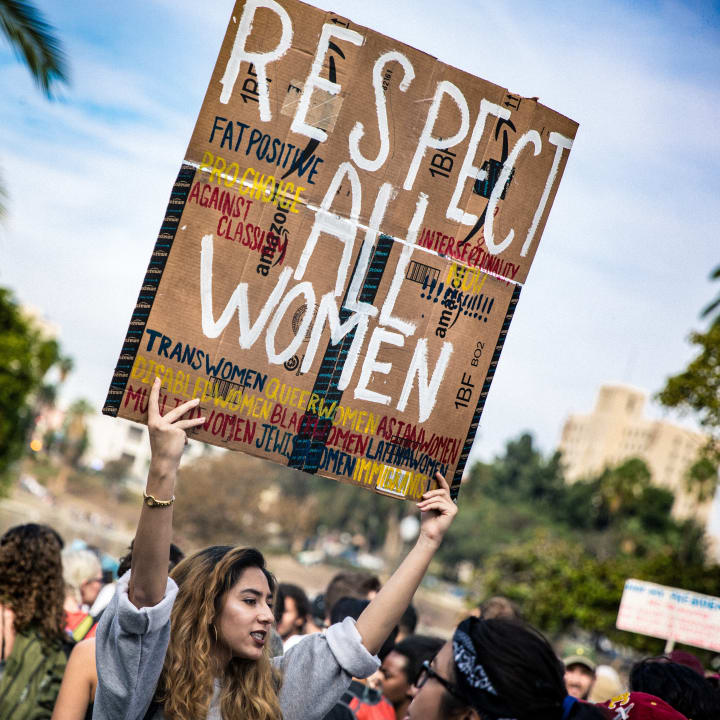To all the people I hate(d)
On the processing of my anger and women's rage (the personal is political, as you know)

A few weeks ago I was going to take part in a documentary about women´s rage. For the documentary I had to record a personal interview where I was asked how I was raised regarding my rage: was I taught to acknowledge and express it or to ignore it and suppress it. That part was no problem. In fact, it was fun because I don’t have much of a filter and I learnt more about how I view women’s rage through my answers.
The second part of the documentary was harder, though. I had to write a letter addressed to someone towards whom I felt anger. It had to be personal rage, not political. At first, I thought it would be really easy for me because anger has been one of the predominant feelings in my life for a long time. So I sat down ready to scribble something in a few minutes and I stood poised, pen in hand, for all those minutes. I had no clue where to start. My rage had evaporated. Sure, I had still had moments where I was angry, but it was only temporary. I wasn’t holding any grudges.
I realized then that therapy does more than you are consciously aware of. I had been going to psychotherapy for around a year to work on stress coping and self-esteem. Anger had been touched upon as a part of my (previous) personality, but it hadn’t been the focus of any session specifically and I hadn’t been given any exercises or tricks to manage my anger. Still, I had been given the tools to detect the things that upset me and set me in a downward spiral of negativity and instinctively I had learnt that anger is one of those things. So I had let it go.
Now, wait a second before you start thinking “oh, yeah, I’m sure it’s that easy”. I don’t mean that I suddenly decided to let it be and everything fell into place; not at all. It has been a journey full of fights, internal and external, and of readjustments. It has taken a lot of courage to break out of my silent routine and a lot of time until I learnt how to show my anger before it became a weapon to through at someone.
But don’t get me wrong, I don’t want to vilify anger; it’s a necessary emotion for change. Without outrage or anger, there is no change at the personal or the political level. But for change to happen, you need anger to be expressed, let out. And I hadn’t been doing that in a healthy way until lately. Once I started to speak up about the things that bothered me, even if it was just to myself so that I could set boundaries, things started to change and people respected those new boundaries and left me my space. I didn’t need a perpetual frown, I needed to be assertive.
So this meant that when I was about to write my letter for the documentary, there was no one that I could think of towards whom I still felt anger. By learning that I had a right to stop pleasing others at my own expense I had created the boundaries that allowed me to stop people before they could trigger my explosive anger. This meant a healthier mental health for me, but also healthier relationships with those who usually triggered me, on purpose or not. So, in the end, I realized that anything that I wrote for the documentary would be fake and sound fake. I had to try several times before I got something that resembled what they were looking for, and even so, at the end, I decided not to read it. It was a vulnerable topic, first of all, but it also didn’t ring true in my ears. After all, I couldn’t tell the whole truth: that I didn’t feel that anger anymore because I had learnt to let it go. It wasn’t fair, therefore, to put it in a documentary about women’s rage, because it wasn’t representing the truth about my rage.

Still, I think there needs to be a discussion about women’s rage. It is there because women are human beings and human beings feel rage. I think women are taught to suppress their rage so that they don’t question the status quo of their oppressed position in society. My experience has been that I was constantly told that I took life too seriously, that I was upset because I was too sensitive, instead of acknowledging that there is something wrong with how things are run. The message was that I shouldn’t be angry at the injustices of the world, just accept them as they are because I won’t be able to change anything. That might be true (although I don’t personally believe it), but to ask of someone to swallow their rage when they are being disrespected is a bit too much. And tough luck, I don’t work like that.
However, the fact that my opinions were constantly undermined and that my anger was dismissed taught me that no one wanted to listen to the things that hurt or infuriated me. That if I chose to express anger, it was very likely that I would end up alone because my role was to accommodate others, but I shouldn’t expect others to accommodate my needs. Now, however, I know better. I know to express anger before it becomes toxic for me and I have learnt that those who care about me will listen. It’s no one’s job to read my mind, but I have the power and the obligation to express my needs and make room for myself. Don’t let anyone tell you that you aren’t worthy of positive relationships just because you are a woman brave enough to express what you want. There’s nothing wrong with that if you can manage your anger so that it evokes positive change around you. If it defines you, it’s up to you to shape it in your benefit.
And, let’s be clear about this, shutting up your anger won’t make it go away. You won’t “let it go” by stifling it. It will stay and come up in a future argument or you will drift apart from the person who is annoying you – whether that means literally leaving them, ignoring them or not desiring their presence as much as you used to. But you can express what is annoying you before it becomes too much. It can be stressful or hurtful to mention what is bothering us; it’s a vulnerable position. But in the long term, it’s the only way to maintain a relationship where both parties are comfortable and feel respected. And even though it is something that I’ve learnt, I don’t always do it. Sometimes I forget that things won’t just fall into place. Or I feel like I don’t deserve to say what is annoying me because I was hurtful last time. The thing is, we won’t always do it perfectly and we might hurt someone. Other times the other person won’t want to listen. But that doesn’t mean that we have to stop expressing ourselves, it means that we need to improve our approach. Trial and error. But we have to keep trying.
So from here, I would like to say to all women: learn to manage your anger in a way that isn’t toxic to you or your close ones. Don’t be afraid to speak up, if they care about you they will listen and accommodate what you are saying in their behaviour. It’s time to take up our space not only in the public sphere but also in our day-to-day relationships. You are valuable enough to be listened to and respected. Even if you are an “angry woman” ;).
About the Creator
Clementine Lips
Erotic short story writer (bisexual). My stories center around female characters and their pleasure. Let's reclaim our pussies!
Twitter @ClementineLips
Insta: @clementine_lips
Gumroad: gumroad/clementinelips






Comments
There are no comments for this story
Be the first to respond and start the conversation.